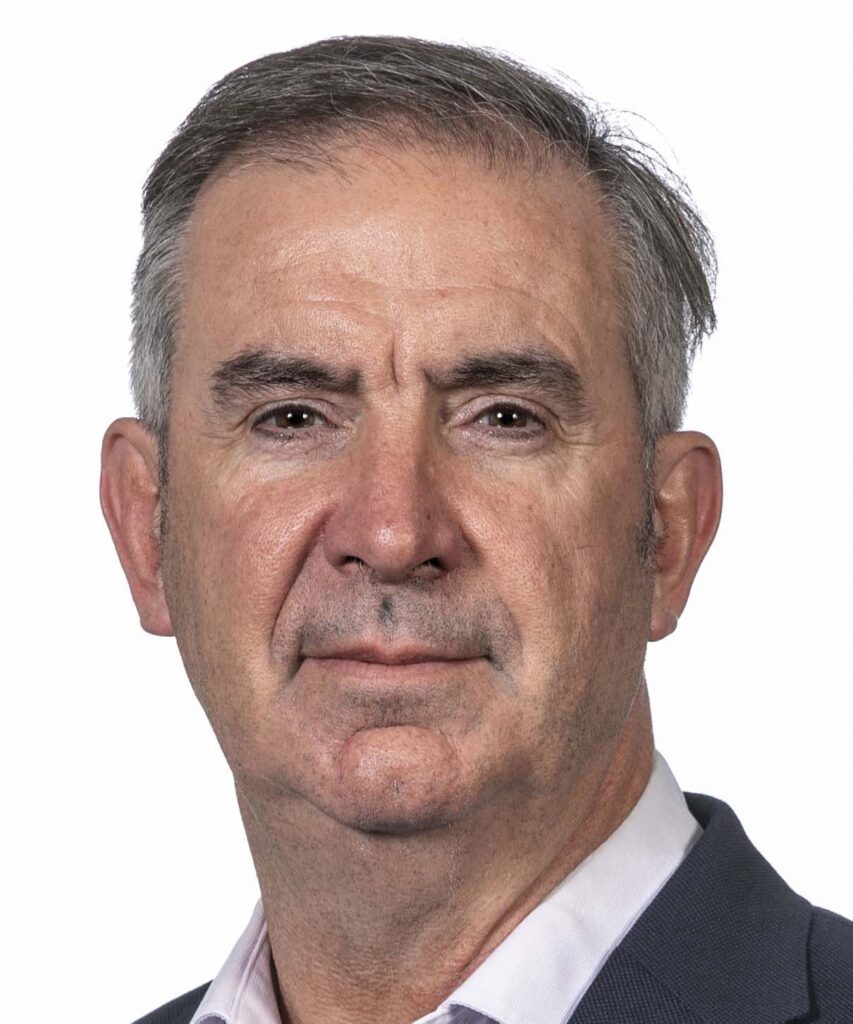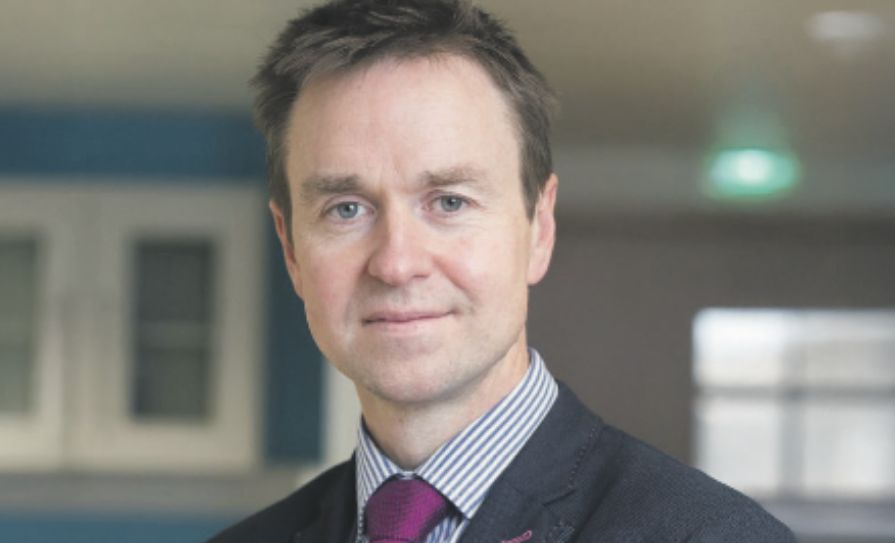Julinda Schroeder reports on the recent Health Management Institute of Ireland Annual Conference,
which focused on healthcare integration
The 12th Annual Conference of the Health Management Institute of Ireland (HMI) was held in Dublin on 25 October. The theme of the event was ‘Leading healthcare integration – strategies for optimising patient care’. Discussions focused on the benefits of integrated healthcare services and the challenges in implementation. Mr Tony Canavan, HMI President and CEO of the Saolta University Health Care Group, introduced the line-up of speakers to discuss and debate their experiences and the lessons learned to date. Speakers reflected on the advancements that have taken place in the five years since the Sláintecare Report was published and the areas where improvements were still required.
OECD
Dr Douglas Sutherland (PhD), Senior Economist and Head of the economics department at the Organisation for Economic Co-operation and Development (OECD), was among the speakers. Dr Sutherland referred to the OECD’s Economic Survey of Ireland released in December 2022. He said the report showed life expectancy in Ireland was now among the best in OECD countries. The report indicated that after a period of “retrenchment”, spending on health had risen and was now high in comparison to other OECD countries. Other findings were that spending on health accounted for a sizeable share of the Government budget, which largely reflected high costs. In this regard, remuneration rates were high and pharmaceutical spending was often not availing of low-cost alternatives. In addition, with the population’s rate of ageing beginning to accelerate, spending pressures were projected to increase.
Dr Sutherland noted recommendations in the OECD survey for improving the health sector’s performance. He said the implementation of the health regions was important to rebalance healthcare delivery across primary, community and long-term care, and hospitals. The introduction of a population-based resource allocation model was also necessary to distribute funding according to the needs in a local population. Such a model would also improve financial reporting and management and strengthen equity in health outcomes. Other recommendations related to unique health identifiers and the centralisation of data governance within a single independent body; integrated funding and service delivery to offer home care and admission to long-term residential care when needed; and a single assessment tool to facilitate more effective person-centred care services.
Shocks to the system
Prof Steve Thomas (PhD), Edward Kennedy Chair of Health Policy and Management and Director of Health Policy and Engagement at the School of Medicine, Trinity College Dublin, also addressed the conference. The title of Prof Thomas’s talk was ‘The state of healthcare in Ireland through system shocks: The legacy for the workforce’. He listed the legacies of the 2008/2009 economic crisis for the health sector. These included a distrust of the decision-making agenda among those delivering care. He said the economic crisis also contributed to burn-out of the workforce. In addition, there was a reduction in primary care usage, increased emergency care, medication mismanagement, and delayed treatment. Prof Thomas explained that ‘shocks’ – such as the austerity measures following the economic crisis and the Covid-19 pandemic – often stress-tested the health system and exposed its weakest points. However, he also said lessons can be learned from how the system responded to these crises, which can help drive change.

Prof Steve Thomas (PhD)
According to Prof Thomas, the “pent-up demand” arising from the pandemic has not “worked through” the system. He said there were two key issues that were very challenging. The first was high staff turnover across all professional categories, due to a sense of burn-out, exhaustion, and disengagement. The second was long waiting lists that had been exacerbated by the pandemic.
“Because there is a lot of pent-up demand for care after Covid-19, the last thing you want to be doing is taking money [out of the system] at a time when you have high burn-out and a huge pent-up demand – that looks like negligence.”
He also referred to the current cost-of-living crisis as “a sort of low-burn economic squeeze” placing the workforce under more pressure.
“Staff engagement is a complex and multi-factoral issue and we must pay particular attention to how we engage with and motivate staff,” Prof Thomas said.
“They must be protected and supported when facing the next shock coming down the road.”
Does every service need to be integrated? Of course not; it is not a panacea
Integrated care
In the second half of the programme, Prof Áine Carroll, Consultant in Rehabilitation Medicine at the National Rehabilitation Hospital, Dún Laoghaire, spoke about how integrated care was implemented in practice. Prof Carroll stressed that what worked in integrated care was context sensitive.

Mr Damien McCallion
In his address, Mr Damien McCallion, HSE Chief Operations Officer (COO), explained the concept of healthcare integration. He said it was care delivered at the lowest appropriate level of complexity through a health service. It should be well-organised and managed to enable comprehensive care pathways, which patients can easily access and service providers can deliver.
He said investment was needed in healthcare governance and leadership to facilitate the integration of structures and services. In this regard, hospital and community services needed to be aligned. Also, Mr McCallion said there were some areas where integration was inappropriate.
“Does every service need to be integrated? Of course not; it is not a panacea.”
Mr McCallion outlined the challenges faced by the public health care sector in Ireland, which included a lack of integrated care for patients. According to the HSE COO, there continued to be fragmented care and insufficient access to timely care. He said another problem was “misaligned geographies” that increased pressure on urgent and unscheduled care. Moreover, decisions were often still made too far from the patient and which resulted in significant bureaucracy. Mr McCallion said there was less than efficient allocation of resources between hospital and community care.
However, he noted some progress to date, such as preparation for the implementation of the new health regional structure. He said the recruitment of the six regional executive officers was underway.
In conclusion, he said that integrating services to improve outcomes and experiences for people went beyond structures.
“Regional structures will come into place in February 2024 with implementation continuing through 2024, and we have to maintain focus on service delivery and improving our services while going through this process, difficult as that is,” Mr McCallion noted.
“We will continue to implement key programmes that organise and deliver our services in a more integrated manner, where needed, so that people’s access to and experience of our system is positive with good outcomes.”













Leave a Reply
You must be logged in to post a comment.